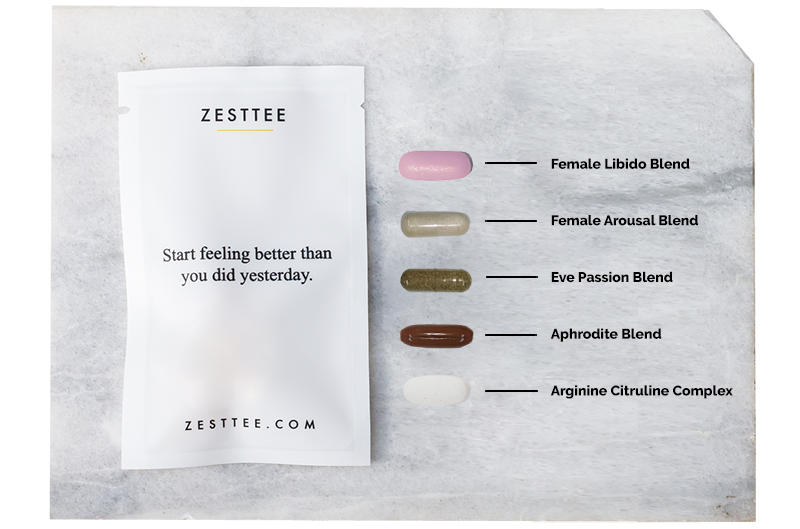CATERGORY: GENERAL HEALTH
Unlocking the O:
Overcoming Obstacles to Achieving Orgasm

Women have long been conditioned to believe that experiencing orgasm during sex is elusive, leading many to accept a low frequency of orgasms. According to research, only a quarter of women are able to orgasm consistently through vaginal intercourse, while half achieve it occasionally, 20% seldom experience orgasm and 5% never do. However, it is time for these statistics to change, and there are several reasons why some women may not be able to reach orgasm. This article explores common factors that inhibit women from reaching orgasm and suggests solutions for each.
1. Orgasm Pressure
Why it’s an issue: Putting too much pressure on yourself or from a partner to reach orgasm can lead to physical tension, racing thoughts, and other obstacles that prevent orgasm. It can create feelings of discomfort and failure, ultimately leading to a less satisfying sexual experience.
Solution: Remove the pressure. If it’s coming from within, focus on enjoying the entire sexual experience and don't make orgasm the sole goal. You can still enjoy the other physical sensations that come with sex. If the pressure is coming from a partner, communicate with them about how you feel and redirect the focus on enjoying the experience together instead of racing to an orgasm.
2. Unfamiliarity with Your Body
Why it’s an issue: Understanding your body is essential to achieving consistent orgasms. Every body is different, and it takes time to discover what feels good and what doesn't. Without this knowledge, it's difficult to guide a partner to provide the right stimulation for you.
Solution: Take time to explore your own body and discover what feels best. Try different techniques on your own or learn from sex podcasts or books. This is an opportunity to learn how to have sex with yourself and become comfortable with your own sexuality. You can also explore with a partner but focus on discovering what feels good without making orgasm the only goal.
3. Insufficient Clitoral Stimulation
Why it’s an issue: Simply having enough foreplay is not enough, it needs to be the right kind of foreplay. For the majority of women (70%), direct clitoral stimulation is essential for achieving orgasm. Even if you don't require it to reach orgasm, stimulating your clitoris can make the process easier and more pleasurable.
Solution: Incorporate more clitoral stimulation into your sexual routine. Use a vibrator to provide intense sensations or try positions that target the clitoris, such as missionary or doggy. You can also receive oral stimulation for gentle and direct contact. Experiment with different techniques to find what feels best.
4. Excessive Alcohol Consumption
Why it’s an issue: Alcohol can dehydrate your body, leading to decreased natural lubrication and increased vaginal dryness, which can cause discomfort and hinder your chances of orgasm. It can also interfere with aspects of your central nervous system that are associated with sexual arousal and orgasm.
Solution: Limit your alcohol intake before engaging in sexual activity and drink plenty of water to counteract dehydration.
5. Mental Obstacles
Why it’s an issue: Achieving orgasm is not just a physical process, it is also a mental one. Distractions and negative thoughts can prevent you from being in the moment and enjoying the sensations that can lead to orgasm. This may include shame surrounding sex, difficulty being vulnerable, or being preoccupied with other things.
Solution: Address the mental roadblocks. For simple distractions, eliminate them before sex, such as writing down your to-do list, practicing deep breathing, or meditation. For deeper-rooted issues, like shame around sex, seek the help of a therapist to overcome them.
6. Sexual Pain
Why it’s an issue: Pain during sex is never normal and should not be ignored. Sometimes, what is supposed to be pleasurable can be painful due to underlying medical conditions.
Solution: If you experience pain during sex, talk to your doctor immediately. Repeated pain during sex could be caused by an underlying medical condition like endometriosis. Identifying the cause is the first step in managing or treating your symptoms, which can lead to relief.
7. Insufficient Lubrication
Why it's a concern: Sex involves a lot of friction and stimulation of sensitive tissues. Without adequate lubrication, what should be a pleasurable experience can become uncomfortable or even painful, making it difficult to reach orgasm.
Solution: Use lubrication! Even if you're naturally lubricated during arousal, you can benefit from additional lubrication in most cases. It can prevent discomfort and enhance sensations.
8. Full Bladder
Why it's a concern: Your bladder is in close proximity to where the action is taking place. Thrusting movements can make you aware of the need to urinate, distracting you and making it difficult to reach orgasm.
Solution: It's simple - use the restroom before engaging in sexual activity.
9. Lack of Excitement
Why it's a concern: Sometimes you're just not in the mood, and that's perfectly fine. It's essential to remember that everyone experiences a decline in sex drive at some point. Stress, past experiences, and even diet can all impact sexual desire. It may be necessary to take some time to figure out what's hindering your sexual appetite.
Solution: Good sex relies on excellent communication. Talk to your partner about what's going on and work together to find a solution. Therapy can also be useful in these situations, and medications can help restore your sex drive. Consider reviewing your past sexual encounters where you didn't orgasm and look for common threads. Try different approaches, but don't put pressure on yourself to climax. Instead, eliminate any barriers and allow the sexual experience to unfold naturally. Remember, orgasms are wonderful, but there are many ways to enjoy your sexuality!
Remember, everyone experiences a decline in sex drive at some point, so don't stress if you're just not feeling it. Talk to your partner and work together to find a solution. There are so many ways to enjoy your sexuality, so don't be afraid to experiment and have fun!


